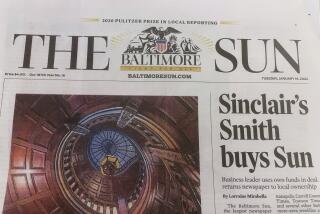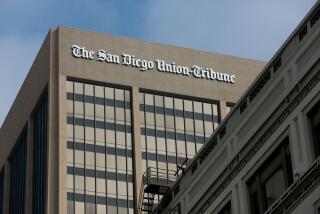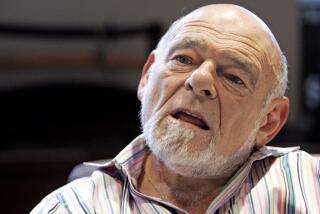Tribune and IRS Face Off in Tax Court
A long-running tussle between Tribune Co. and the Internal Revenue Service shifted to U.S. Tax Court in Los Angeles on Monday as a trial began over fallout from business deals the media company inherited when it purchased Times Mirror Co.
The dispute is rooted in the unusually complex arrangements surrounding Times Mirror’s divestiture of two publishing units in 1998.
Its Matthew Bender & Co. unit and a stake in another of its legal publishing outfits were acquired for $1.6 billion by European publisher Reed Elsevier Group, and its Mosby Inc. health publications group was acquired for $415 million by Harcourt General Inc.
Times Mirror reported gains of nearly $1.4 billion on the transactions. Its attorneys, however, told the IRS that the company had no tax liability because the units had been “disposed” of in separate tax-free reorganizations.
The IRS contends that the deals were essentially sales and should have been taxed that way. The agency is demanding $600 million in back taxes and $315 million in interest, which Tribune is challenging in court.
Taking the witness stand Monday, former Matthew Bender Chief Executive Kathryn Downing was asked what role, if any, tax considerations played in Times Mirror’s decision to divest itself of the unit.
“Tax didn’t play a role until that decision was made,” said Downing, who after the divestiture served as publisher of the Los Angeles Times for about a year. Once Times Mirror’s board made its decision, “the goal was to do it in the most tax-efficient manner,” she said.
Downing acknowledged the complex nature of the deal’s “reverse triangular merger structure.”
“I understand it at a conceptual level,” she said. “I understand the high-level pieces but nothing else.”
Asked by an IRS attorney whether the deal’s tax structure was a “nonnegotiable part of the auction process” for Bender, she said, “That was not my understanding.”
Downing was also asked by the IRS lawyer whether she got a bonus for her role in the transaction. She said she did, primarily for her efforts to keep top managers and employees in place and to make sure financial performance remained strong leading up to the deal.
She was later asked by a Tribune lawyer whether her bonus bore any relation to the tax consequences of the deal.
“It did not,” Downing said.
Hatef Behnia, a tax attorney at Gibson, Dunn & Crutcher who reviewed the deal for Times Mirror, testified that the deal’s structure apparently originated with the accounting firm PricewaterhouseCoopers and was presented to Times Mirror by Goldman, Sachs & Co., the investment bank retained by the media company.
Asked by an IRS lawyer whether he received any pressure from Times Mirror to provide a favorable opinion, Behnia said, “No, sir, I did not.”
IRS officials declined to comment, saying they were barred from discussing specific taxpayers.
A spokesman for Tribune also declined to comment, saying the company didn’t discuss active lawsuits. Tribune acquired Times Mirror and its flagship paper, the Los Angeles Times, in 2000.
Andrew M. Short, a tax partner at the law firm Paul, Hastings, Janofsky & Walker in New York, said the tax arrangements were “very cleverly constructed,” complying precisely with the letter of the tax law.
Instead of receiving cash directly for its assets, Times Mirror received shares in two specially created corporations. Those shares weren’t subject to taxes, the company maintained. Those corporations set up separate limited liability corporations whose main assets -- the cash realized from the divestiture of Bender and Mosby -- were controlled by Times Mirror, Short said.
Douglas A. Schaaf, a Paul Hastings tax partner in Costa Mesa, noted that the IRS issued a legal opinion in 2001 challenging Times Mirror’s deal and saying it would not accept sales structured in such a way in the future.
Prudential Equity Group analyst Steven Barlow said Monday that an unfavorable ruling for Tribune is “a big risk out there that shareholders should be aware of.”
He noted that, as of Sept. 26, Tribune had recorded on its books only $243 million as expenses to cover its potential liability in the case.
Given the huge amounts at stake, legal experts said they wouldn’t be surprised to see the two sides reach a settlement before a verdict, which isn’t expected until late next year.
Bloomberg News was used in compiling this report.
More to Read
The biggest entertainment stories
Get our big stories about Hollywood, film, television, music, arts, culture and more right in your inbox as soon as they publish.
You may occasionally receive promotional content from the Los Angeles Times.











